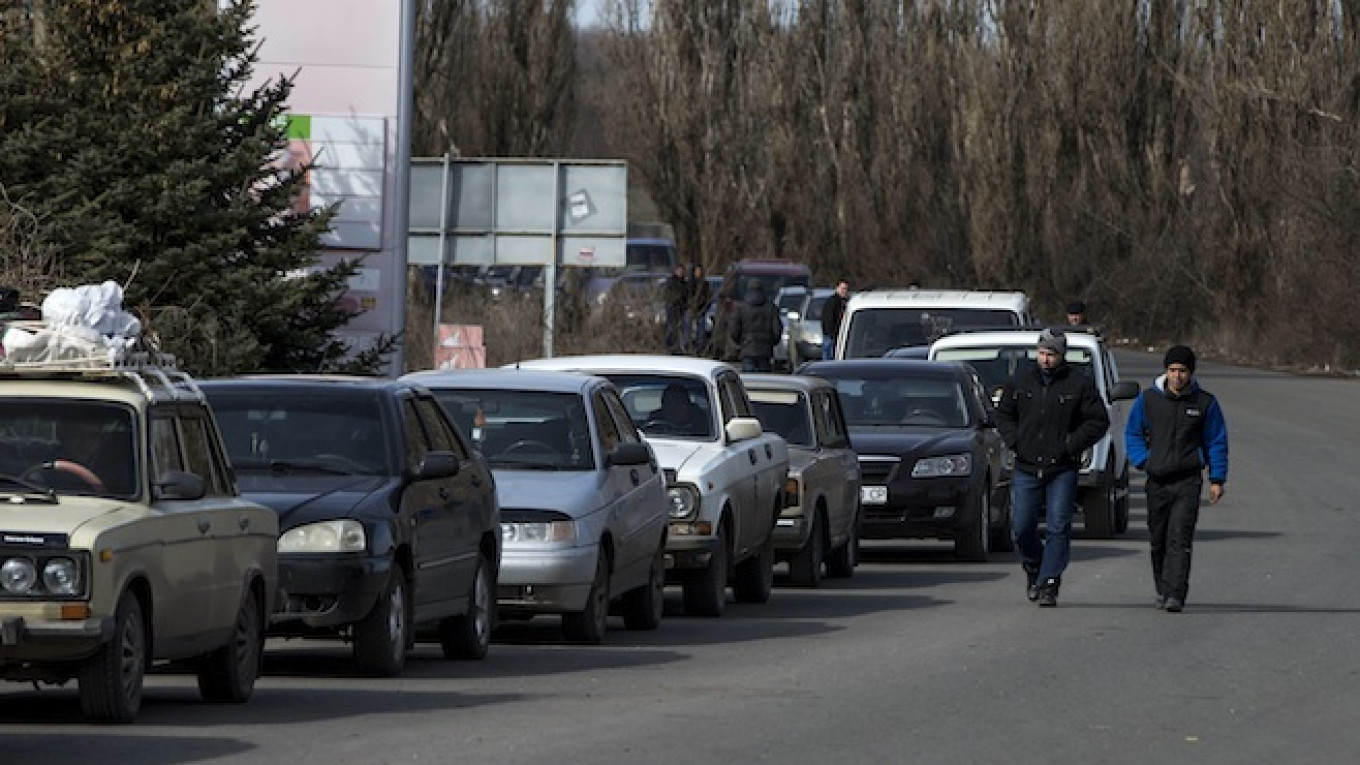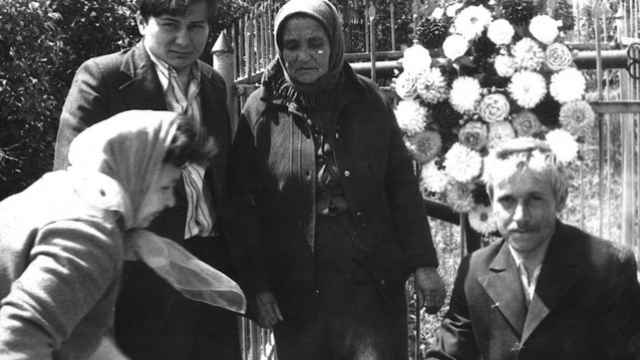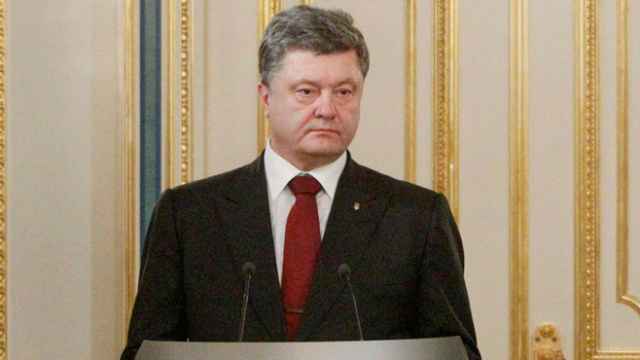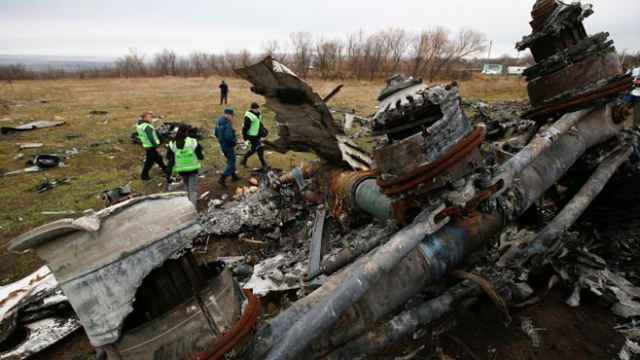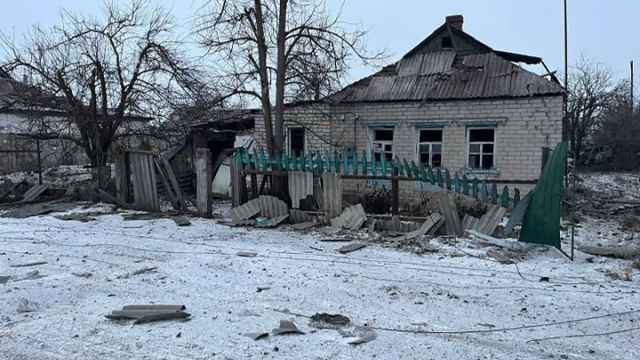USPENKA BORDER CROSSING — Looking out over the several hundred cars lined up to cross into Russia from rebel-held eastern Ukraine, Vladimir curses the separatist authorities who he says are forcing people to venture out of the rebel stronghold in search of basic needs.
In contrast to the highly publicized Russian humanitarian aid convoys that roll into rebel-held territory, the kilometer-long line at the Uspenka border post testifies to the hardships common people endure in the conflict between Ukrainian troops and forces of the Donetsk People's Republic (DNR).
"For now, the DNR are only good at fighting, they have no clue about civilian needs," said Vladimir, a locksmith who works in one of the region's many mines.
He said he arrived at the border crossing in his Chevrolet at 5:30 a.m. on Sunday to take his 78-year-old father to Russia for eye surgery no longer available in Donetsk.
By noon, he was still at the far end of the line.
Those in the line said rebel border officials were taking their time in checking vehicles and documents and the numbers wanting to cross had increased of late.
Moscow has vocally supported the separatists who took up arms against Kiev last April — the West says with weapons and troops — and Russia is a welcome escape from the hardships of the conflict, but travelling there is fraught with frustration.
"This is a complete mess," said Mikhail, 60, who had been in the queue for more than 24 hours and still had more than a dozen cars in front of him.
Like many others he was queuing to leave in order to buy petrol in Russia, where it costs half as much as in rebel-held eastern Ukraine. Despite their self-proclaimed independence, rebel regions still use the hryvnia, which has fallen to record lows since the start of the Ukraine crisis early last year.
"It undermines trust in the new authorities," he said of the separatists, who captured Donetsk last April and then proclaimed their own Donetsk People's Republic. "When the election comes, do you think I will vote for them?"
Early on Sunday, a convoy of some 40 trucks, including large gasoline tankers, tagged "humanitarian aid from Russia" crossed through the Uspenka point into rebel-held territory past the long line of cars waiting to leave the separatist stronghold.
Some want to leave altogether, others just want to stock up on cheaper supplies, food and medicine. Some simply go to visit relatives who live only dozens of kilometers away.
"Is that what we fought for in here? We lived like animals before, and after all that, we still live like animals. I have family in Taganrog in Russia, I will no longer be here," said a pensioner who gave her name as Tatyana.
Adding to the tensions among locals, car carrying separatist fighters often speed to the front of the line, bypassing waiting motorists.
The head of the DNR border guard unit on site refused to comment on the situation.
Fighting in east Ukraine has largely died out since a cease-fire agreement sealed in Minsk in February but some representatives on the ground from the OSCE, Europe's security watchdog, said on Sunday that the number of incidents and violations has increased in recent days.
A Message from The Moscow Times:
Dear readers,
We are facing unprecedented challenges. Russia's Prosecutor General's Office has designated The Moscow Times as an "undesirable" organization, criminalizing our work and putting our staff at risk of prosecution. This follows our earlier unjust labeling as a "foreign agent."
These actions are direct attempts to silence independent journalism in Russia. The authorities claim our work "discredits the decisions of the Russian leadership." We see things differently: we strive to provide accurate, unbiased reporting on Russia.
We, the journalists of The Moscow Times, refuse to be silenced. But to continue our work, we need your help.
Your support, no matter how small, makes a world of difference. If you can, please support us monthly starting from just $2. It's quick to set up, and every contribution makes a significant impact.
By supporting The Moscow Times, you're defending open, independent journalism in the face of repression. Thank you for standing with us.
Remind me later.


